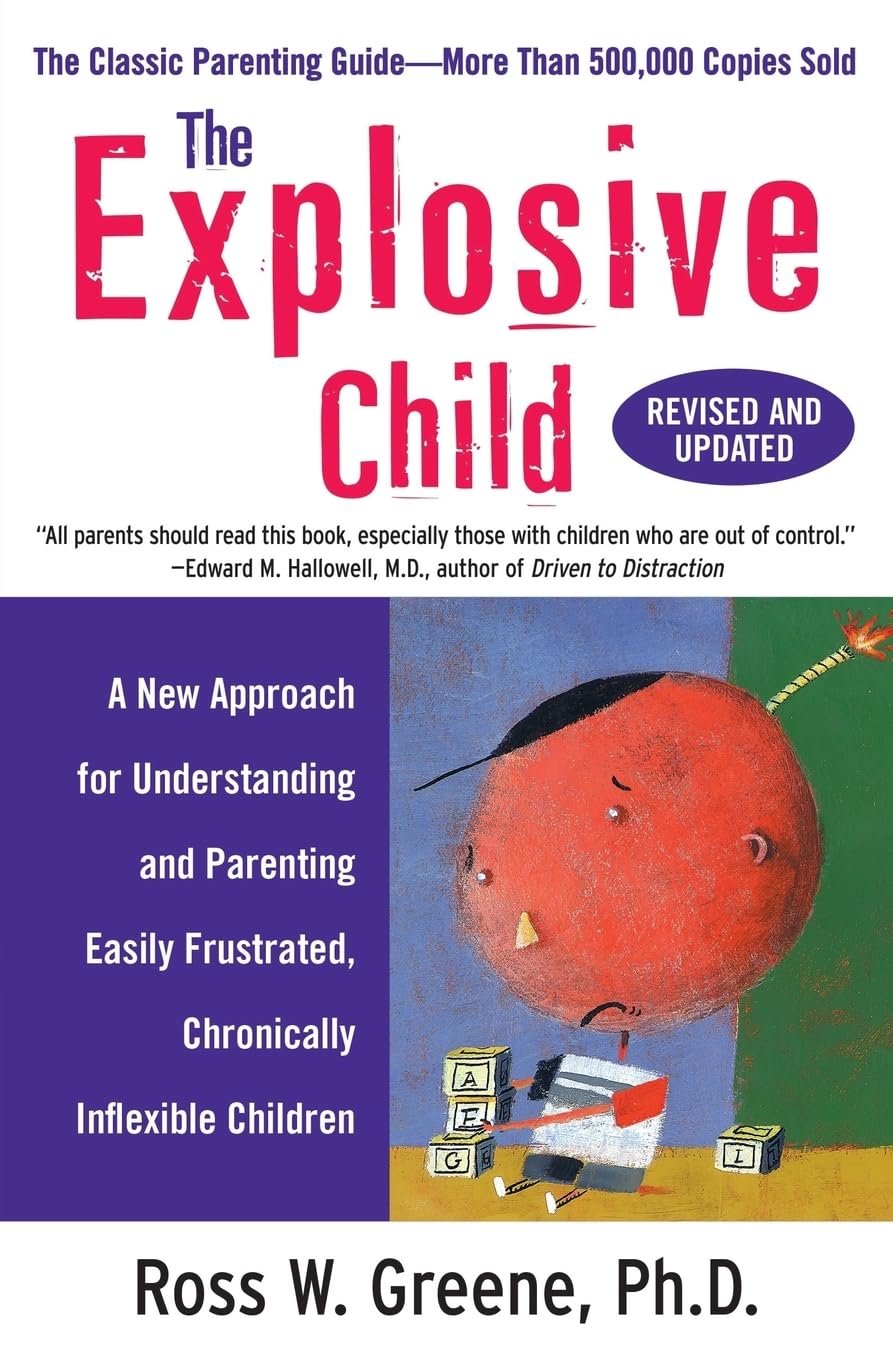About this deal
He has three options for dealing with the child. Plan A, B and C. Plan A is the one most people use. It's a "No." "You are being ridiculous, stop doing that right now." Which works with some kids, but if your kid is still exploding, it's not working for yours. Another discipline book I almost finished reading! I can tell I have an explosive child on my hands, but this book made me feel a lot better about my personal situation. It could be a lot worse! However, the solution proposed by the book - a sort of negotiation with your child - has not worked in our household. I suppose we just can't get over the notion that we should be in charge. Period.
Dr. Ross Greene is the New York Times bestselling author of the influential books The Explosive Child, Lost at School, Raising Human Beings, and Lost & Found. He is the originator of the innovative, evidence-based treatment approach called Collaborative & Proactive Solutions (CPS) described in these books. The CPS model provides a compassionate, accurate understanding of behavioral challenges and an evidence-based, non-punitive, non-adversarial approach for reducing challenging episodes, solving problems, improving communication, and repairing relationships. Some of what you will read below may be contrary to the way you’ve always thought about parenting. But if you feel that raising your explosive child isn’t going well, the following 10 tips may be a life-changer. More commonly, children have difficulty learning a particular skill even though they have the desire to master the skill and have been provided with the instruction typically needed to master it. It’s not that they don’t want to learn; it’s simply that they are not learning as readily as expected. Dr. Greene approaches the problem of explosive anger from the perspective of a neuropsychologist – someone who is keenly aware of brain development and functioning – and explains that children explode in anger because they become overwhelmed due to the situation or their capacity to withstand the situation. People who have a hard time grasping and/or applying the concepts of this book might benefit from the help, encouragement and assurance of a therapist skilled in CPS.Plan C: Set the problem aside for now to prioritize bigger problems. This can be stabilizing for children with many unsolved problems. Don’t mislabel your child. Seeing your child’s difficulties through the prism of lagging skills permits you to stop referring to your child in counterproductive ways, calling him attention-seeking, manipulative, unmotivated, button-pushing, and so on. Mental health professionals often label the parents of behaviorally challenging kids as passive, permissive, inconsistent, or inept disciplinarians, but those characterizations are off the mark as well.
Try a new parenting plan. Many caregivers try to solve behavior problems unilaterally by imposing rules on their child — called Plan A in the CPS model — but you’ll be more successful if you and your child solve those problems together instead (Plan B). When you solve problems together, you become partners — teammates — not enemies or adversaries.
More Articles Recommended For You
Thinking clearly and problem solving is easier if a person has capacity to separate or detach themselves from emotions cause by the frustration .
Pathways represent skills that need to be trained and are explanations and not excuses for the behavior. Many people believe that accountability is a code for punishment. Some believe that if consequences the child has received for his explosions haven’t stopped him exploding, it must be because they didn’t cause the child enough pain. The majority of explosive kids experienced a great deal of pain. It is the assumption of this book that the child already knows what is right and wrong and is motivated. Many explanations for the child’s behaviour are clichés such as:The vast majority of solutions to problems encountered by human beings fall into one of these three general categories: (1) ask for help; (2) meet halfway/give a little; and (3) do it a different way. Obviously it's not always that neat. But I've found that just starting with "What's up?" makes a world of difference. And if you learn their triggers. i.e. hunger, tiredness, math. You can sometimes head them off at the pass. Putting a lot of energy into teaching an explosive child “who’s boss” may be counterproductive since the child is already motivated and knows who’s boss. Empathy and Reassurance is crucial for these children because they often overreact when faced with the realisation their rigid notions about how events should unfold will not be fulfilled. Kids do well if they can" mentality. Greene reminds parents that children want to succeed but they act out when they are lagging in the skills they need to behave well. He focuses on solving underlying problems rather than bad behavior, because if you solve the problem then the behavior should improve as a result.
 Great Deal
Great Deal 